The targeted growth will help extend the reach of the academic medical center into national spotlight.
In just over eight months, Guilherme Oliveira, MD, MBA, has reimagined USF Health’s cardiovascular program and established the foundations of a new cardiovascular institute – a collaboration of the USF Health Morsani College of Medicine (MCOM) and Tampa General Hospital (TGH).
“It’s been a busy year,” Dr. Oliveira said. “And there’s much more to come.”
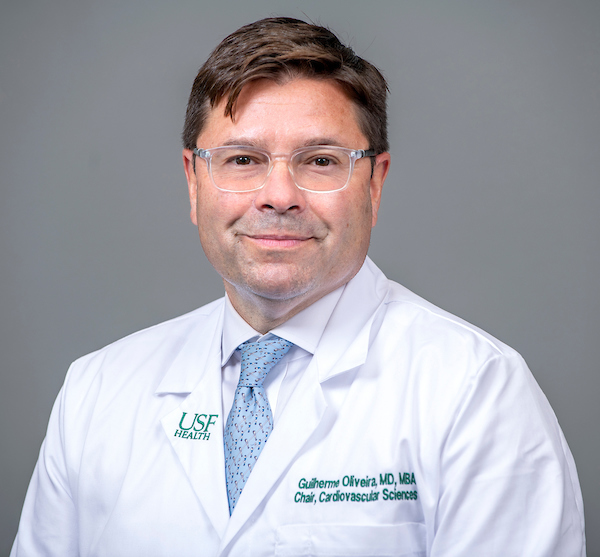
Dr. Guilherme Oliveira
Dr. Oliveira joined USF Health in January 2020 as chief of the Division of Cardiovascular Sciences in MCOM and director of the USFH/TGH Heart and Vascular Institute (HVI), as well as associate director of the USF Health Heart Institute, dedicated to research.
Effectively, he serves as the executive responsible for the entirety of the heart services at USF Health and TGH, a position that provides the opportunity to redesign patient care, strengthen the scientific mission, and elevate the reputations of USF Health and TGH as national leaders in cardiovascular care.
“By redesigning our overall operations and expanding our areas of expertise through recruitment of talented physicians, we are developing greater depth and breadth in every aspect of our mission as an academic medical center: clinical care, research and education,” Dr. Oliveira said. “This all-encompassing approach will not only result in improved patient care and outcomes, but also stronger collaborative research and discovery, putting a national spotlight on our entire program.”
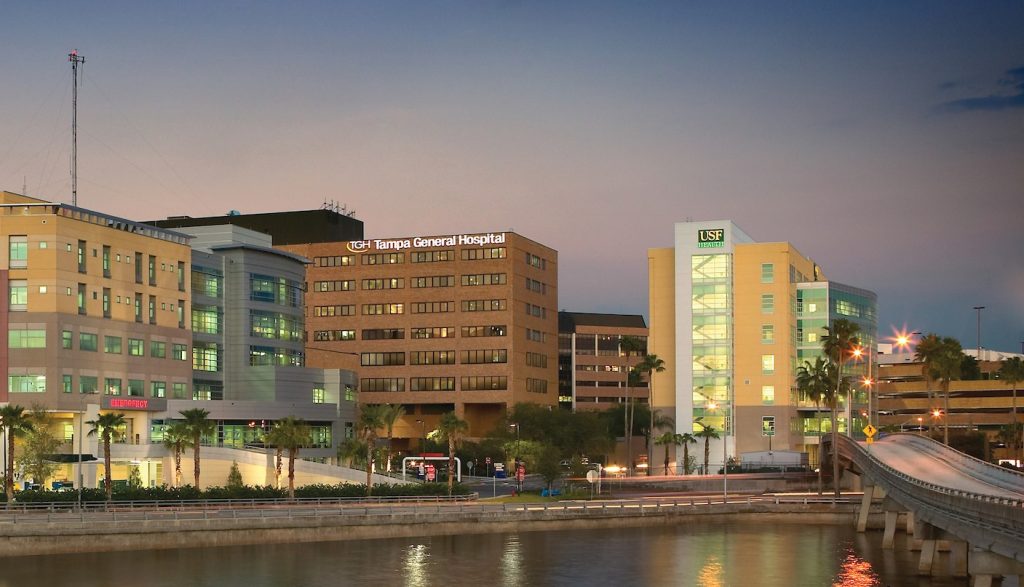
USF Health and TGH have coordinated cardiology efforts for many years and the collaboration has led to significant gains in national rankings – TGH just earned a #1 ranking in Florida by U.S. News & World Report for cardiology and heart surgery, programs led by USF Health faculty with full TGH support.
Designing a framework for comprehensive care and quality education
One of the first steps on the academic and clinical sides, Dr. Oliveira said, was to create dedicated specialty sections within the MCOM Division of Cardiovascular Sciences, which include electrophysiology, interventional, imaging, heart failure, education, and general cardiology/prevention. Careful growth in all sections is the plan, he said, but the general cardiology section will see the biggest push because of the ever-growing demand by patients for general and preventative heart care, especially among women.

“Our general cardiology program needs to meet patient demand and that includes adding a stronger focus on women’s health and prevention,” he said. “We are also taking advantage of our faculty expertise and establishing ultra-specialized programs, including cardiovascular genetics, cardiac amyloidosis, hypertrophic and inflammatory cardiomyopathies, pulmonary hypertension and a pericardial clinic.”
In addition, Dr. Oliveira said he is focused on expanding the aortic, mitral valve, and neurocardiology programs, bringing new and innovative technology to patients in Tampa Bay and beyond.
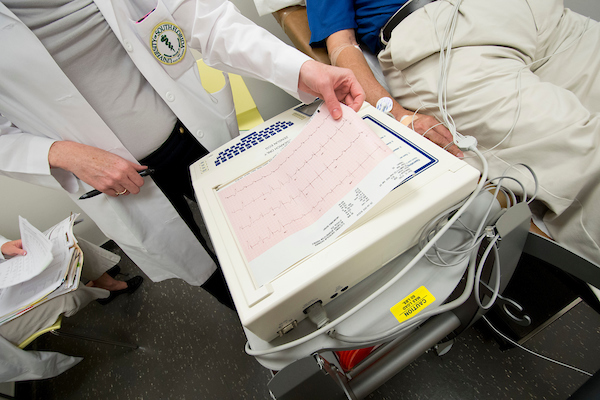
In partnership with Moffitt Cancer Center, Dr. Oliveira said he is also planning to expand cardio-oncology, transitioning from a small program to a full-fledged cardiology service line at Moffitt.
To support these and other areas, several talented faculty members have been successfully recruited, including two key hires he says will bring renowned expertise to the USF Health and TGH programs: the new chief of cardiothoracic surgery, Lucian Lozonschi, MD, whose expertise includes robotic and minimally invasive cardiac surgery, heart transplant and valve surgery, and Hiram Bezerra, MD, PhD, who, in addition to being an internationally recognized interventional cardiologist, brings with him a robust portfolio of clinical trials.
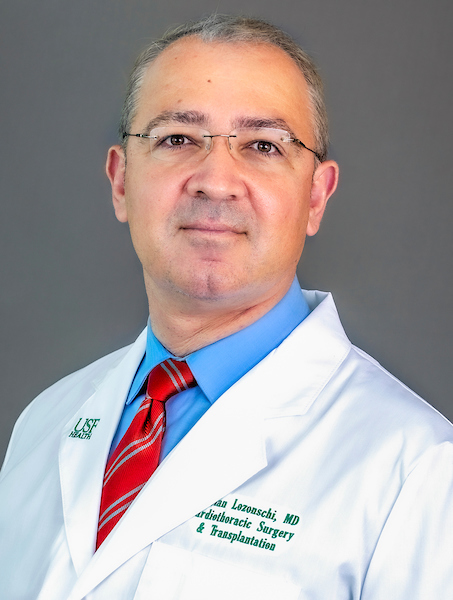
Dr. Lucian Lozonschi
In addition to leading cardiac surgery, Dr. Lozonschi serves as the associate director of HVI. He is also the surgical director of heart transplant and mechanical circulatory support, and associate director of the Transplant Institute.
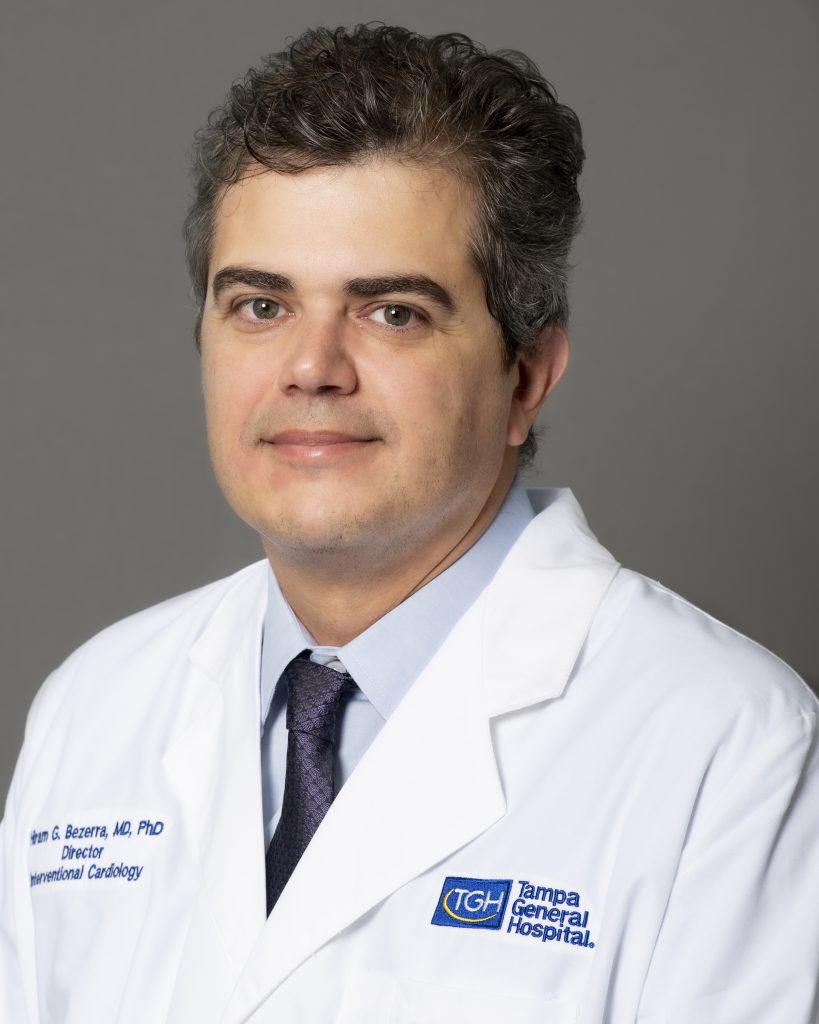
Dr. Hiram Bezerra
And Dr. Bezerra is the section chief of interventional cardiology at USF Health and directs the Interventional Cardiology Center within the HVI. With more than 160 peer-reviewed research articles and memberships at numerous editorial boards and professional committees, Dr. Bezerra brings to USF Health and TGH his research experience in interventional cardiology and optical coherence tomography.
Building a new destination cardiovascular center
The new USF Health/TGH Heart and Vascular Institute is designed to be a destination cardiovascular institute built on the best clinical and scientific expertise available at both USF Health and TGH. It also benefits from collaboration and innovative opportunities provided by organizations outside of the academic medical center, including private practices and biomedical industry.
“Our main goal is to conduct high-impact, disruptive cardiovascular research,” Dr. Oliveira said. “And our collaborative reach will go beyond just TGH and USF Health and stretch well into the greater Tampa Bay area physicians in private practice. Together, we are building an institute that is unparalleled in Florida.”
The HVI comprises several centers of excellence focusing on core areas of cardiovascular care: cardiac surgery, vascular surgery, interventional, electrophysiology, heart failure, imaging, and prevention. In addition, Dr. Oliveira created centers for education and cardiovascular research, with a quality office that ties all the centers together and ensures world-class outcomes.
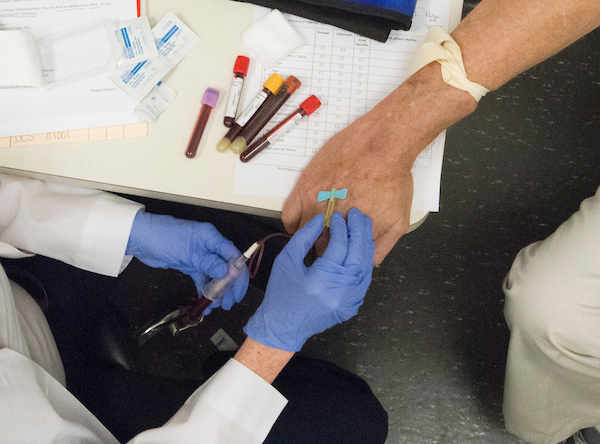
A central advantage of the HVI will be its ambulatory headquarters – within the new Morsani College of Medicine and Heart Institute tower, just opened in January 2020. On the ninth floor of the new building, HVI team members will offer direct patient care for the most complex cardiovascular conditions, which often require a multidisciplinary approach. There, patients can expect to have a wide range of cardiac testing followed by consultations with a multidisciplinary team of cardiologists, pulmonologists, geneticist and surgeons. Because clinical care at the HVI will take place adjacent to the world-class research facilities of USF Health Heart Institute, it will enable conduction of bench-to-bedside science that hopefully will impact cardiovascular disease for generations to come. Added to that is the proximity to TGH, where surgical intervention and transplant programs round out the entire spectrum of patient care.
“This will be a highly integrated, synergistic union of every facet of heart care,” Dr. Oliveira said. “Consider it the trifecta of clinical, translational and basic research within a clinical care setting. In other words, a one-stop shop for superior academic cardiovascular care.”
